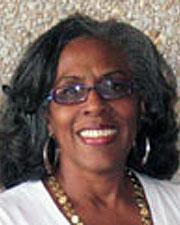Ad-hoc African/Americanists and Affiliates (AHAA)
About
AHAA (Ad-hoc African / Americanists and Affiliates) is a group of English Department faculty committed to the teaching of African, African-American, and African diaspora literatures. Our goal is to foster vigorous conversations about these literatures among faculty and students within the department and beyond. We develop and coordinate relevant courses, promote diversity among our faculty and students, and make connections between the English Department and other units within the University of Kansas and the larger community for the sponsoring of multicultural events. We encourage interested students to contact any of us individually.
Academics
ENGL 316 Introduction to Major American Writers
The goal in this course is to increase your appreciation and understanding of American writing and to gain some familiarity with selected MAJOR writers. We will focus on short fiction, including one or two shorter novels, and a tiny bit on poetry (probably Hughes), to contrast various genres. Our course begins with an investigation of the name of the course, i.e.. “Major”, “American” and “Writer.” Once we have collective agreement on these terms, we begin our weekly assigned readings. I reserve the right to give pop quizzes and short review tests, and everyone is expected to be an active contributor to the course. Each class session will devote 15 minutes to contemporary literature, so that you can develop your critical skills and to make literature something that captures your interest beyond class. Sharing is strongly encouraged during this period. What can you expect to learn:
- to recognize the tools and language of literary discourse;
- how to read carefully, closely, passionately, and between the lines;
- how to write an effective response essay.
ENGL 498 Honors Proseminar: Literature of Social Justice
This class will examine literature, including first-person autobiographical accounts, journalistic accounts, and novels, which has addressed situations of political and economic oppression or repression with the potential function of enlisting readers in a project of social justice. This aim was quite clear in the antebellum slave narratives, as well as in novels like Uncle Tom’s Cabin. More recently, it has also been clear in the Latin American genre known as “testimonio,” in which people wrote of their first-hand experiences with death squads, disappearances, and totalitarian dictatorships. This class will read selections from these and other examples (including an autobiography about Jim Crow-era segregation, a recent novel about a Sudanese refugee, and a non-fictional account of fourteen men who died in the Arizona desert in 2001 while trying to cross the border) as a way of discussing questions about literature that overtly attempts to participate in a social justice project. We will address vexed debates surrounding cultural authority and authenticity, identity politics, attempts to represent the voice of the “oppressed,” revision of strategies used in slave narrative or in testimonio, and ethical and rhetorical appeals to an assumed readership. The main purpose of this class is to learn how to find a position within a theoretical issue or debate and to apply critical theoretical materials to literary texts in order to develop an effective argument. The class is meant to serve as preparation for the Honors Thesis. Students will be asked to develop their own research topics within the topic of “social justice literature,” to do research on their topics, to evaluate the research they find for its arguments and its helpfulness to their topic, and to write a research paper at the end of the course. As is the case for any literature class, we will of course be working on further developing skills associated with the study of literature: close reading, analysis, and the development and support of oral and written arguments.
ENGL 575/AMS 696 Literature of the South
Called the Jim Crow or the segregated South, this period has been famously described as “worse than slavery” because of the passage of Jim Crow laws to withhold from black southerners such basic civil rights as voting, educational opportunity, health care, and mobility and of the regular use of terrorism to enforce this brutal and unjust regime. The goal of this course will be to develop and propose–through the study, discussion, and analysis of a variety of cultural texts–an empowering response to the deeply conflicted experiences and legacies of the peoples of the segregated South. We will read diaries, novels, essays, and memoirs to examine the construction of life in the segregated South from a variety of perspectives: then and now, male and female, children and adults, black and white, Jewish and Christian, urban and rural, cosmopolitan and provincial, rich and poor, bitter and nostalgic.
ENGL 674 South African Fiction, Politics, and Culture
This course introduces students to South African fiction from the beginning of apartheid (1948) to the present, as well as to critical theoretical issues concerning language, literature, literacy, race, ethnicity, and power generated by the country’s often violent history. Towards these goals, we will read and explore the relationships among novels, short stories, theoretical and critical essays, and political manifestoes. We will also be drawing on a short, excellent history of South Africa which will help us better understand the historical trajectory leading up to 1948 as well as the apartheid era itself. During reading and discussion, students may well find interesting parallels with American history and literature.
ENGL 690 Topics in American Literature
The course will use stories, novels, memoirs, and essays to examine the construction of the transnational experience in U.S. immigrant writing. The first third or more of the course will cover works written between 1880-1920. The second two-thirds of the semester will jump to the 21st century, working with a broad array of materials.
In addition to discussing the literary construction of these narratives, we will also use a variety of other lenses, including their historical and social contexts, and gender and racial issues. We will also discuss the impact of technology, especially communications technologies, on the experience of crossing borders. Throughout, our interest will be to explore the differences between “assimilationist,” “transnational,” and “diasporic” models of immigrant experience and the ways that these models are displayed in the creative output of immigrants/transnationals themselves.
ENGL 774 Ellison & Baraka: Jazz, Politics & Race
Central to these great African-American writers are the themes of jazz, politics and race. Both Ellison and Baraka regard black music—spirituals, blues, gospel, and jazz—as the core of African-American culture. In short, to understand the music is to understand the culture; moreover, jazz, the most sophisticated of black musical forms, serves as a model for these authors’ literary innovations. Unlike much of American literature, politics is front and center in their oeuvres, and even though they reach different conclusions, radical politics is confronted by both. Furthermore, race hovers over their texts: what is the meaning of blackness in America and what is blackness? Since I argue that Ellison and Baraka are cultural theorists, we will read their nonfiction as well as their creative work. In essence, these authors, from different generations, battle over the very nature of the African-American tradition.
AHAA affiliates in other departments
American Studies (AMS)
- AMS 344 Unequal Bodies: Race, Gender, and Class in the History of American Public Health
- AMS 696 Bad Mamas: Gender, Deviance and Motherhood
- AMS 344 Case Study: Sport and Higher Education
African and African American Studies (AAAS)
- AAAS 323 African American Culture
- AAAS 420 Intercultural Communications: The African American
- AAAS 801 Introduction to Africana Studies
Theatre (THR)
- THR 380 Popular Culture: Hip Hop
- THR 429 Postcolonial Theatre and Drama
Members
Affiliated Members
- Shawn Leigh Alexander
Professor and Chairperson, African and African-American Studies
Director, Langston Hughes Center
- Tony Bolden
Associate Professor, African and African-American Studies
Director, Undergraduate Studies
- Randal Maurice Jelks, PhD
Professor, American Studies & African and African-American Studies
- Dorthy Lee Pennington
Associate Professor of African and African-American Studies & Communication Studies
- Nicole Hodges Persley, PhD
Associate Professor, American Studies & African and African-American Studies
Courtesy Associate Professor, Theatre and Dance
- Sherri Tucker
Professor, American Studies




